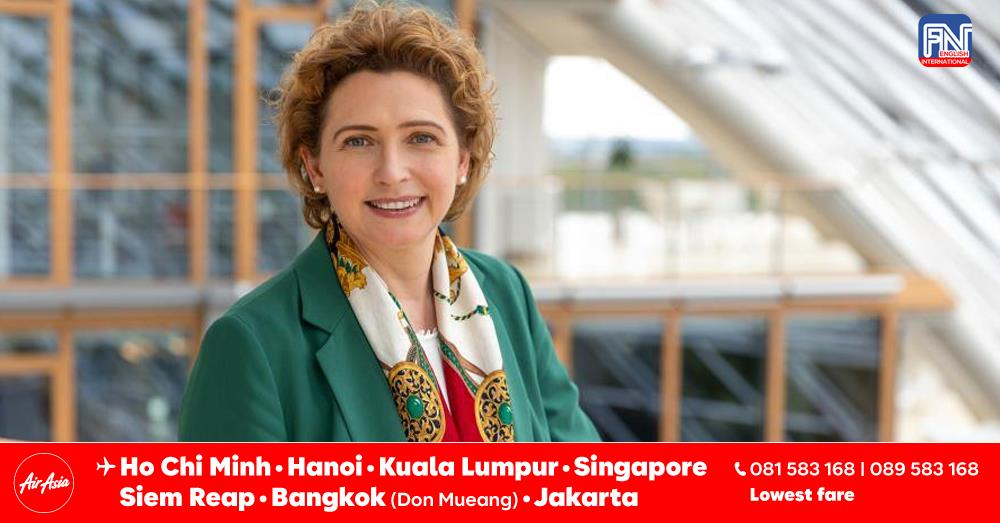Phnom Penh (FN), Mar. 19 – The European Investment Bank (EIB) signed an $86.7 million EU-backed investment recently to enhance Cambodia’s agriculture sector. The funding aims to improve farmers' yields and standards, making them more competitive while promoting green finance for a sustainable transition.
As part of the initiative, approximately €15 million ($16.25 million) has been allocated to support the Agriculture Services Program for an Inclusive Rural Economy and Agricultural Trade (ASPIRE-AT). This project seeks to alleviate rural poverty, enhance climate resilience, and drive sustainable agricultural growth in Cambodia.
This grant agreement, signed on March 14, supplements a €60 million ($65 million) loan from EIB Global and an additional €4.5 million ($4.8 million) in technical assistance support from the European Union, which will be implemented by the EIB.
The investment will also finance the construction of the Kaoh Khsach Tonlea bridge, connecting the island to the mainland. The bridge aims to improve market access and test a new agricultural cooperative model.
EIB Vice-President Nicola Beer outlined the project’s three primary components: modernizing agricultural communities, strengthening plant and food security, and constructing the bridge to connect the community to the mainland.
“This is an investment, and the cooperation with the Cambodian government will benefit 100,000 smallholder farmers, 25,000 land-poor households, and 500 agriculture enterprises,” Beer stated.
She emphasized that the partnership with Cambodia is generating positive societal impacts, fostering a beneficial atmosphere, and expressed optimism about collaborating on future projects in the country.
A major challenge facing Cambodian farmers is the lack of value addition in their produce, which significantly restricts their ability to meet international standards and expand into foreign markets. Many farmers sell their agricultural produce without processing them locally, which not only reduces their earnings but also makes them less competitive in the global marketplace.
Beer emphasized that without the necessary infrastructure, technical support, and investment, Cambodian farmers struggle to move beyond subsistence farming and into high-value agricultural production.
She highlighted the need for targeted assistance to help farmers establish processing facilities within Cambodia, enabling them to transform raw agricultural products into finished goods with higher market value. By improving their ability to process crops domestically, farmers would be in a stronger position to negotiate better prices, enter new markets, and reduce their reliance on exporting unprocessed goods to neighboring countries.
“We want to help the farmers to not only produce but also process their crops, allowing them the opportunity to export to neighboring countries or the European market, which would secure better prices,” she said.
She added that the EIB is working with Cambodian and European partners, including high-tech corporations, to facilitate knowledge transfer and technology adoption. This collaboration aims to lower costs and align with Cambodia’s agricultural needs.
“If you produce at the highest international standards, you can access the European market or regional markets. However, many of these products currently go unprocessed to neighboring countries and are then re-imported at a higher cost, leading to financial losses,” Beer explained.
Issuing Green Bonds
Beer also underscored Cambodia's commitment to decarbonization and the EIB’s role in supporting this ambition through green finance. The EIB is collaborating with Cambodian banks to provide expertise, training, and initial financing for green initiatives.
“We are discussing framework loans for partnering banks in Cambodia, which will be used by small and medium enterprises to decarbonize their energy supply, start recycling initiatives, and green their businesses,” she said.
She noted that these efforts help lower the cost of the green transition, enabling Cambodia to grow sustainably.
The issuance of approximately $10 million in green bonds, backed by the Credit Guarantee and Investment Facility (CGIF), a trust fund of the Asian Development Bank (ADB), is a key step in this direction. Another $10 million in green bonds is set to follow in a second tranche. These projects will contribute directly to Cambodia’s greenhouse gas reduction goals and support its nationally determined contributions (NDCs).
“Green finance is not just about treasury management; it's about injecting sufficient funds into the real economy to facilitate a smooth green transition,” Beer said.
The EU is also looking to establish strategic partnerships with Cambodian banks to develop intermediary financing mechanisms that will support small and medium enterprises (SMEs) in their transition to more environmentally sustainable business practices. This financing initiative aims to provide SMEs with the necessary capital to invest in green technologies, such as renewable energy sources, energy-efficient production methods, and sustainable supply chains.
By decarbonizing their energy supply, optimizing production processes, and enhancing service offerings, these businesses will not only reduce their environmental impact but also improve their competitiveness in the local and international markets. Ultimately, this approach seeks to drive economic growth while ensuring that Cambodian enterprises remain resilient and adaptable in the face of evolving global sustainability standards.
“I am confident that in the coming months, we will see more projects materializing under this framework,” Beer added. “A partnership with the European Union and the EIB brings together various stakeholders and resources, ensuring Cambodia benefits from financial expertise and sustainable development opportunities.”
This article was originally published on Cambodianess.
=FRESH NEWS

Photo from European Investment Bank




